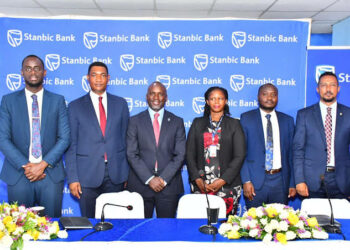JOHANNESBURG, November, 2020 – A Huawei solution to support network operation centres during the COVID-19 pandemic has won the COVID-19 Response Award at the AfricaCom Virtual Awards.
The Huawei O&M Autin grid-based operations solution won the prize, which recognises organisations and initiatives that have successfully deployed technology solutions in the battle against the COVID-19 pandemic. Huawei was chosen as the winner from a shortlist of five initiatives on the continent.
The AfricaCom Virtual Awards acknowledge the contributions of Africa’s tech community in fields including corporate leadership, entrepreneurship, innovation, connectivity, pandemic response and building a more accessible, inclusive digital world.
Huawei developed the Autin grid-based operations solution for network operations and maintenance (O&M), using new technologies such as blockchain, grid-based transformation and the intelligentisation of operations to enable decentralised network management during the COVID-19 pandemic.
About 170 million mobile subscribers in Nigeria – the most populous country in Africa – are served by four main operators from around 30 000 sites nationwide. Maintaining these large infrastructures requires hundreds of field technicians and 24/7 monitoring.
Lockdown and mobility restrictions during the pandemic placed additional challenges on operators, with increased traffic and restrictions on the number of workers permitted at network operations centres (NOCs).
To address these challenges, Huawei developed the Autin grid-based Operation, which decentralises network management by empowering field technicians with digitised tools to proactively monitor network quality indicators and respond to any degradation before subscribers are affected.
The solution not only provides a contingency for operators’ NOCs – essentially working as a “portable NOC” – but expands network monitoring capability with a grid-based operation. A cloud-based, big-data digital platform is at the heart of the solution, leveraging machine-learning/AI, prediction algorithms and knowledge-based intelligent rules.
A monetary incentive mechanism linked to network quality indicators motivates the field workers to embrace this mindset change. Finally, an intelligent command centre – a “magnifier in the sky” – provides real-time visibility of network status, staff geolocation and incident-resolution tracking.
“Grid-based network operation improves prediction capability and increases the agility of operators in responding to network incidents,” said Leo Lu, Huawei’s VP Global Technical Services for Southern Africa. “Field workers shift from being passive-reactive to being proactive thanks to cloud-based technology that gives them visibility and access to a knowledge database to resolve network faults.
“Intelligent dispatching and a network quality-based incentive plan are additional mobile features that improve field workers’ wellbeing and reduce their exposure to the pandemic,” concluded Leo Lu.
Do you have a story in your community or an opinion to share with us: Email us at editorial@watchdoguganda.com












